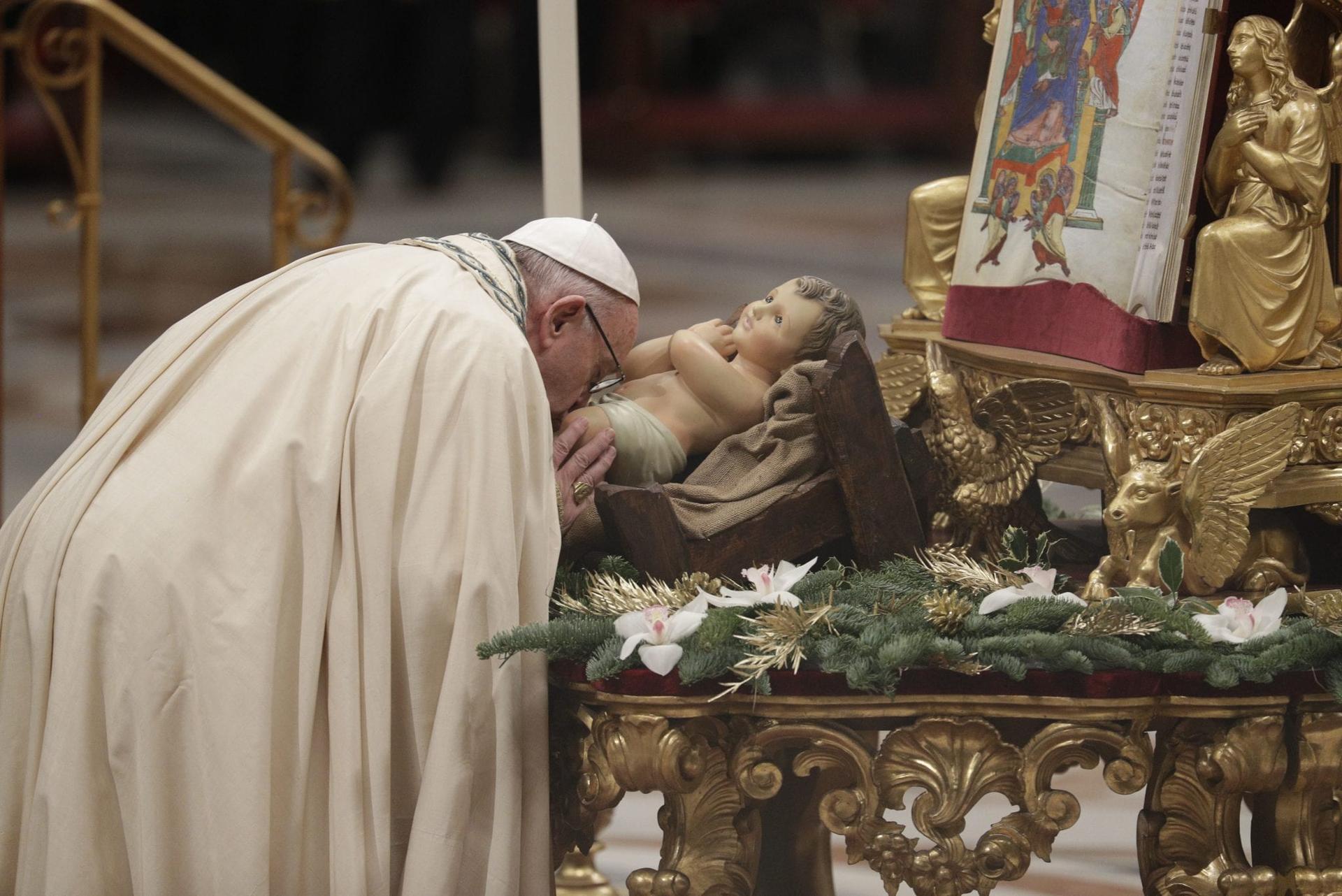ROME – A pope is also the Bishop of Rome, and every once in a while, Romans expect to hear something special from their shepherd. On Sunday Pope Francis delivered, offering a New Year’s Eve homily expressing gratitude for his own Roman flock – although in terms, however, which will have resonance well beyond the Eternal City.
In effect, this was Pope Francis’s version of the famous 1969 “silent majority” speech by U.S. President Richard Nixon, suggesting that the concerns of ordinary people aren’t necessarily reflected in the rattle and hum of media coverage.
While Nixon meant the phrase as an assertion of support for his own conservative politics, Francis appeared to set up the silent majority in Rome as an alternative to politics of all sorts – meaning people, the pope said, who serve their communities not through noisy words, but quiet deeds.
The pope spoke during a vespers service in St. Peter’s Basilica intended to offer thanks for the year coming to a close.
Over the past twelve months, Francis said, he’s felt “sympathy and gratitude for all those persons who, every day, contribute with small but precious gestures to the common good, who seek to do their duty as well as possible.”
“As the Bishop of Rome, I feel gratitude in my soul, thinking about the people who live with open hearts in the city,” Francis said.
As examples of that spirit, the pope began with a for-instance that will echo the frustrations of many a Roman resident – “those people,” he said, “who move in traffic with good sense and prudence.”
By consensus, the poor state of maintenance on Rome’s roads, the lack of accessible public parking, and the city’s paralyzing traffic, are among the top complaints from locals. For the last couple of decades, Rome has finished atop the list of European cities for both the highest number of auto accidents and fatalities. According to government estimates, the average Roman spends 227 hours every year in traffic jams, the equivalent of more than a week and a half, wasting a total of 135 million hours at a cost of almost $2 billion.
The pope then went on to cite other examples of heroism from the silent majority.
He praised “those who respect public places, and report things that aren’t right; those who are attentive to the elderly, and people in difficulty; and so on,” Francis said.
“These and a thousand other behaviors express concretely love for the city,” the pope said, adding that they come “without giving speeches, without publicity, but with a style of practical civic education for daily life.”
“In this way, they cooperate silently for the common good,” the pope said.
Francis also said he wanted to thank “parents, teachers and all educators who, with the same style, seek to form children and teenagers in a civic sense, with an ethics of responsibility, educating them to feel part [of the city] to take care of it, and to be interested in the reality that surrounds them.”
Francis offered thanks to all those who pursue those outcomes without fanfare.
“These people, even if they don’t make news, are the majority of the people who live in Rome,” he said.
“Among them are many who find themselves in economic difficulty,” he said, “but they don’t cry on each other, nor do they harbor resentments and grudges, but they try every day to do their part to make things a little better.”
Francis said that in offering thanks to God for the past year, he’s especially grateful for these “artisans of the common good, who love their city not with words but with deeds.”
In the opening to his homily for the vespers service, Francis said that New Year’s Eve breathes the “fullness of time,” not simply because a calendar year is closing, but because “the faith makes us contemplate and hear that Jesus Christ, the Word made flesh, has given us the fullness of time of the world and of human history.”
Looking back to 2017, Francis said God gave humanity the year “whole and healthy,” but that once again, human beings “used it up and wounded it,” including through “lies and injustices.”
“Wars are the most flagrant sign of this persistent and absurd pride,” he said. “But so are the small and large offenses against life, against truth, against fraternity, that cause so many forms of human, social and environmental degradation,” the pope said.
Tomorrow, Francis is scheduled to celebrate a Mass honoring Mary as the Mother of God, followed by a noontime Angelus address.
On Jan. 6, Francis will preside over celebrations of the feast of the Epiphany, followed by his annual address to diplomats accredited to the Vatican on Jan. 8. Those events are generally held to mark the end of the holiday season in the Vatican.













